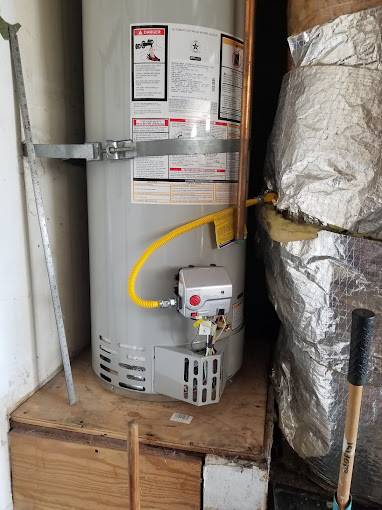Call This Thursday to Get $50 Off
Do You Need a Local Plumber in Phoenix
Call This Thursday to Get $50 OFF
Call This Thursday to Get $50 Off
Do You Need a Local Plumber in Phoenix
Call This Thursday to Get $50 OFF
Like any appliance, a water heater won’t last forever—unless you take good care of it. Keeping your water heater in tip-top shape with regular maintenance prevents surprise water heater repairs and keeps it humming for years. If you live in Phoenix, you know how important having a reliable hot water supply is. Whether calling a plumber for a minor fix or working to prevent major issues, taking care of your water heater is a wise investment. A little care goes a long way with your water heater. Follow these simple steps for optimal performance. It's easier than you think!

Over time, sediment builds up in your water heater’s tank. This happens because minerals in the water settle at the bottom, forming a layer that makes it harder for the unit to heat water efficiently. If too much sediment accumulates, your heater will have to work harder, leading to potential damage and costly water heater repair in Phoenix, AZ.
When your water line starts acting up, it can threaten your home with unexpected leaks or…
Read MoreWhether you’re stepping into an unexpectedly cold shower or noticing unusual sounds from your heater, it's…
Read MoreIf you want to protect your home and family’s health, the water you drink, cook with,…
Read MoreTo prevent this, it’s a good idea to flush the tank at least once a year. Here’s how:
This simple maintenance step can extend the life of your water heater and keep it running efficiently.
The anode rod is a crucial part of your water heater. A metal rod inside the tank attracts minerals and helps prevent rust from forming. Over time, the rod wears out and needs to be replaced to keep your tank from corroding. To check the anode rod:
If you’re unsure how to check or replace the rod, a plumber can help. Keeping this part in good condition can extend the life of your water heater.
Setting your water heater too high can put extra stress on the system. Most units are set to 140°F by default, but lowering the temperature to 120°F can help reduce wear and tear while providing plenty of hot water. To adjust the temperature:
Lowering the temperature also helps save energy and reduces the risk of accidental burns.
Insulating your water heater tank and the pipes leading from it can improve efficiency and extend its lifespan. Insulation helps reduce heat loss, meaning the unit doesn’t have to work as hard to keep the water warm. To insulate your water heater:
For pipes, you can use foam pipe insulation to wrap around the exposed hot water lines. This is especially helpful in colder months.
The pressure relief valve is a safety feature that releases excess pressure inside the tank. If this valve fails, your water heater could become dangerous. Testing it once a year ensures it’s working correctly. To test the valve:
While many maintenance tasks can be done independently, having a professional inspect your water heater is always a good idea. A local plumber can check for hidden issues, clean internal components, and ensure everything works efficiently. A yearly inspection can prevent more significant problems and keep your water heater running smoothly.
Your water heater is an essential part of your home, and with proper care, it can last for many years. Simple maintenance tasks like flushing the tank, checking the anode rod, and insulating the unit can prevent costly water heater repair. If you’re unsure about these steps, a professional plumber can help keep your system in shape. Don’t wait for a breakdown—start maintaining your water heater today and enjoy reliable hot water for years!
Have you ever had water stop flowing or found a surprise puddle under your sink? Problems…
Let’s be real—nobody wakes up excited about handling a clogged sink or a slow-draining tub. But…
While winter is pretty, your pipes might disagree. Frozen pipes are a real pain. When temperatures…
Consider pipe repair if you've noticed strange smells, discoloration, or poor water pressure in your…
Have you ever turned on the faucet and wondered how water gets to your sink? Or…
When your home’s plumbing starts acting up, it can be easy to ignore small problems. But…